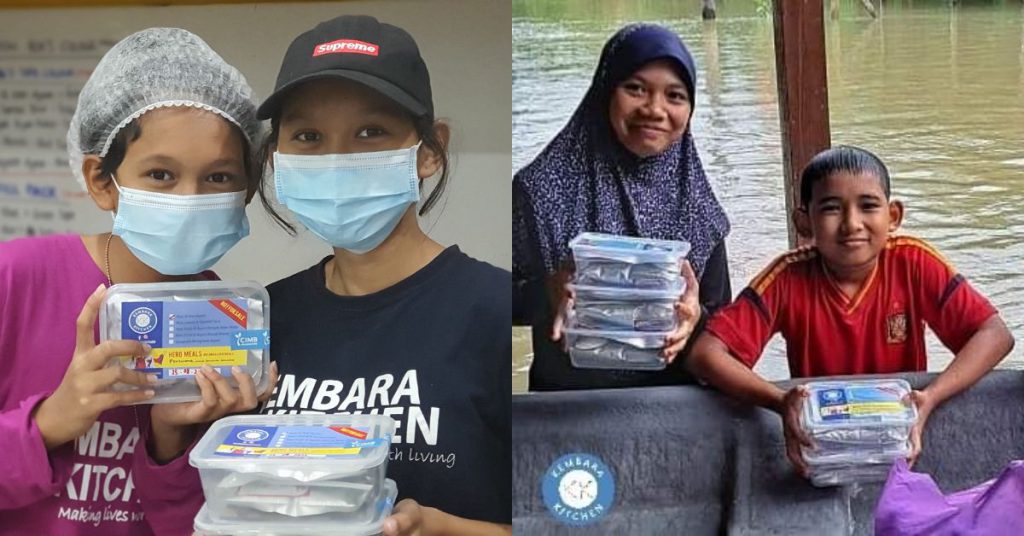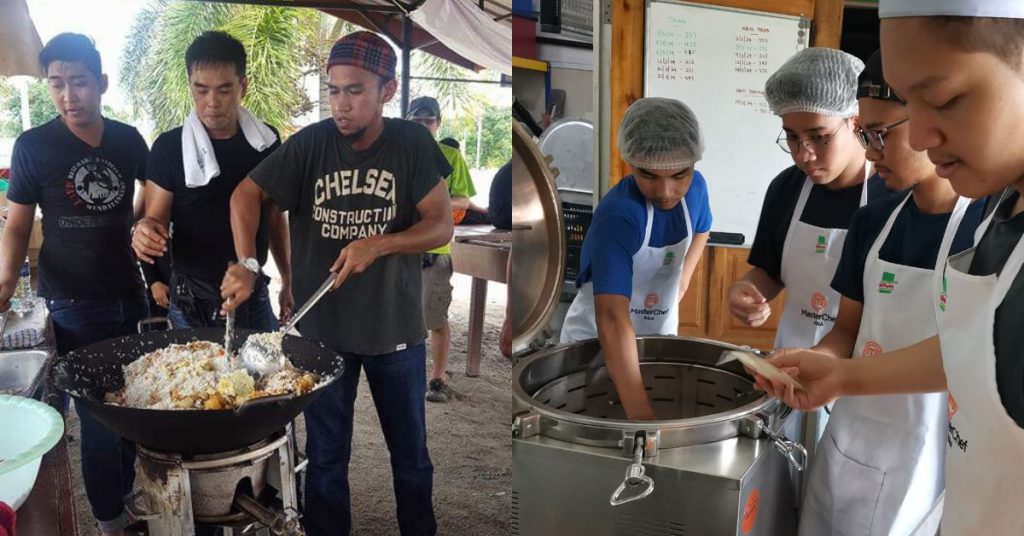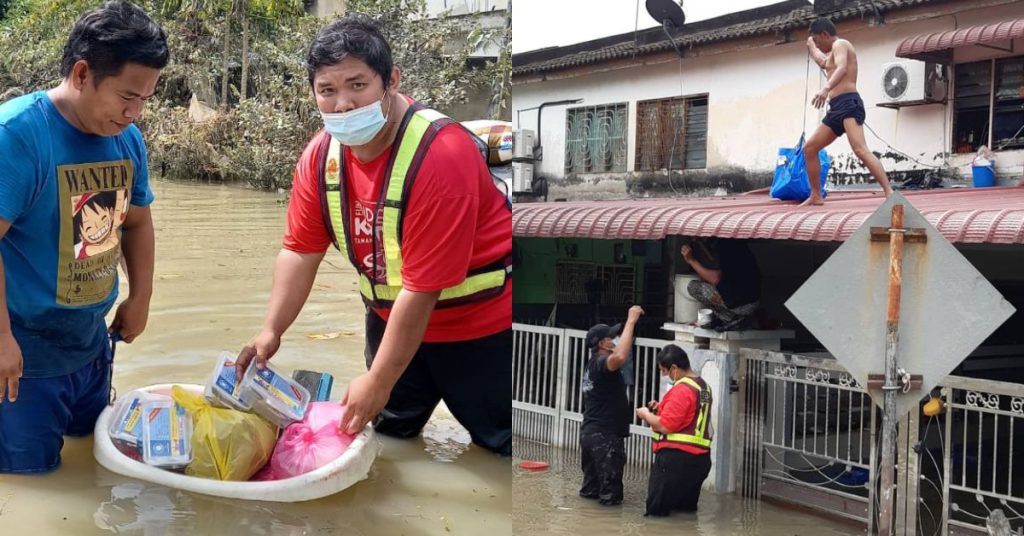When it comes to dealing with natural disasters, providing aid swiftly and effectively is crucial. But what happens when the traditional methods fall short?
Kembara Kitchen, a Malaysian initiative founded nine years ago, has risen to meet this challenge and pioneered innovative solutions to address the gaps in disaster relief.
At its start, Kembara Kitchen was founded by a group of friends with diverse backgrounds spanning from the security industry to headhunting and business.
Now, William Cheah and his wife, Chan Yi Lyn, are the only two actively involved full-time, with two others serving as silent partners contributing valuable expertise.
The shift towards innovation
Kembara Kitchen was originally founded as a catering company. The journey began during the 2015 floods in Kelantan when the founders set up a field kitchen to serve victims with hot meals.
However, they quickly realised that traditional F&B practices were inadequate for disaster situations.
“For example, any normal F&B outlet would have standard equipment such as a cold storage facility or even a small fridge. However, at a disaster site, a field kitchen would most probably not even have electricity, much less a fridge, something that our thought process would take for granted.”
“Along the way, we realised even a field kitchen would not be able to serve the needs in the future. While we still maintain the field kitchen concept, we needed something more viable,” said William.
The lack of infrastructure and logistical challenges prompted them to pivot, leading to the development of ready-to-eat meals as a primary component of their aid efforts.
They came up with Santapan, a commercial arm of Kembara Kitchen which utilises retort technology to produce cost-effective and long-lasting meals.
Retorting is the thermal processing of low-acid foods prone to microbial spoilage in hermetically sealed (airtight) containers to extend their shelf life.
This technology was invented by the US army in 1960s for storing military rations and has since revolutionised food and beverage packaging in the ready-to-eat packaged food segment.

The proceeds from Santapan are then channeled towards the production of Hero Meals which are provided free to disaster victims.
William added that they try to minimise the costs so that every ringgit spent by the donor goes further.
According to him, Hero Meals can be deployed ahead of any disaster because they can last for at least 1.5 years without the need for refrigeration, are easy to store, countable, and simple to transport.
In a very short period of time, this innovation has enabled them to send food aid not only to those affected in Malaysia but internationally as well.
“Just last year we managed to send about 10,000 Hero Meals to Turkey via our Malaysian contingent during the Turkish Earthquake. Currently, we also have already completed three shipments for Palestine via a government-led initiative called Ops Ihsan, with a total of 15,000 meals since the conflict began in October last year. We are expecting to send the fourth shipment in July or August this year,” he added.
Besides providing food aid, Kembara Kitchen identified broader community needs, including infrastructure development in out-of-the-way places such as solar lights and running medical outreach programmes with their medical partners.

“We are also constantly looking at other forms of assistance, services and products which we can develop at a lower cost but remain effective and efficient. There isn’t any specific limit to it actually because the needs vary from community to community.”
“However, food aid remains our core and is almost always the first method we employ during our first contact with new communities,” the founder said.
Guided by principles for a sustainable model
While Kembara Kitchen operates as a business, their clients are donors who purchase products and services, redirecting them to those in need.
This allows them to reinvest profits into further aid efforts, creating a sustainable cycle of support.
Their approach is guided by their “3As” principle: Affordability, Availability, and Access. This helps the team easily identify what’s missing from a situation and channel aid accordingly.
For instance, they initiated a program called Nafas during the pandemic. It provided free transportation for COVID-19 patients who couldn’t afford it or when ambulance services were unavailable due to high demand.
Within 30 days, the initiative expanded from four volunteer vehicles in Klang Valley to nine, with four vans in Johor Bahru and six vans in Penang. The project continued for about three months until the affordability and availability concerns were resolved, he said.
Braving the storm
Despite their achievements, Kembara Kitchen faces ongoing challenges in building awareness around their commercial products and achieving financial sustainability.

“There has never been a year when the need for our community and disaster aid has lessened. It has always grown, regardless if it was the field kitchen, Hero Meals, or even the non-food aids.”
“This meant that the growth of our direct commercial activities that were not community-based, always played second fiddle,” he shared.
William also said that they have become a victim of their own success.
“When people think of Kembara Kitchen, foremost in their minds is about community work and disaster relief. Seldom do they think of us first when it comes to catering for their functions. For example, we have met some of our long-time supporters who didn’t even realise we did catering.”
“There is a much older similar ready-to-eat product, which carries the name Kembara as a brand. I have lost count the number of times people have messaged me how they were supporting our effort by purchasing our commercial product but showing me the other one,” he expressed.
He said there have been days when they have contemplated changing the name of their organisation, but they realised that Kembara Kitchen has become synonymous with community service with a lot of goodwill. It meant something special to a lot of people, not just them.
However, building awareness around their commercial products, like Santapan meals, remains a priority, alongside sustaining financial independence.
Looking ahead and embracing change
Undeterred by their initial struggles, their commitment to innovation and social impact has propelled them forward.

Startup capital of approximately RM60,000 was invested in a practical but basic catering kitchen, with subsequent investments in equipment, facilities, and vehicles for aid delivery.
Over the years, Kembara Kitchen’s revenue has seen a steady growth, from below RM300,000 in the first three years to around RM800,000 during the COVID-19 years, according to William.
This was largely due to the introduction of Hero Meals and Santapan. However, profitability remains elusive, as much of their gross profit is channelled back into community work and operational improvements.
Looking ahead, Kembara Kitchen aims to strengthen existing products and partnerships while continuing to prioritise social impact.
Their journey from ad-hoc volunteers to pioneering social entrepreneurs exemplifies the transformative power of innovation and compassion in addressing humanitarian crises.
- You can learn more the business here.
- Read other articles we’ve written about Malaysian social enterprise here.
Featured Image Credit: Kembara Kitchen / William Cheah and Chan Yi Lyn











